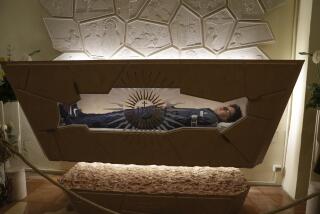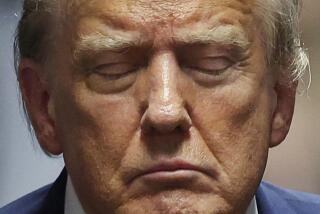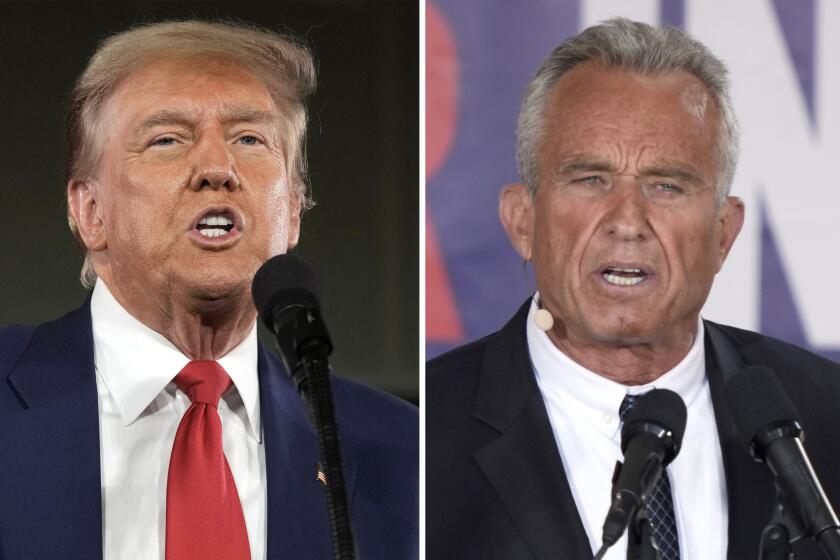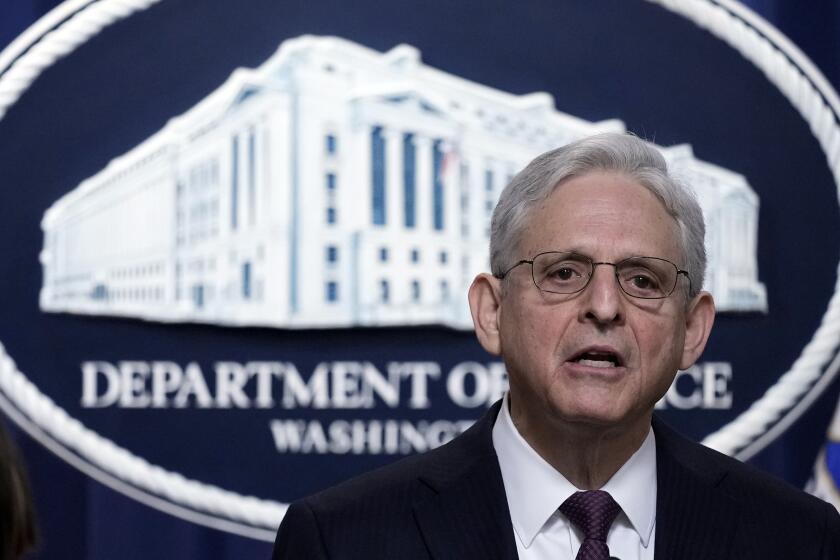Apparent Cases of Abuse Found at Ministry Facility
An Iraqi-led search of an Interior Ministry detention facility in Baghdad has found 13 prisoners who needed hospital treatment after alleged abuses, according to Iraqi and U.S. officials.
Unlike another Interior Ministry detention facility discovered last month where more than 160 prisoners were found beaten and starved, U.S. forces knew about the existence of the prison searched Thursday, said Lt. Col. Guy Rudisill, a spokesman for U.S. military detention issues.
A team composed of Iraqi judges, staff from the Ministry of Human Rights, as well as American doctors and other coalition personnel inspected the second detention facility, Rudisill said, adding that judges determined that 56 other prisoners there should be released.
Prime Minister Ibrahim Jafari initiated a review of all Iraqi prison facilities after the revelations about the first prison. The discovery has proven politically sensitive because the Interior Ministry is led by Shiite Muslims and has recruited heavily from Shiite militias; many of the abused detainees were found to be Sunni Muslims.
The news of the second facility comes four days before Iraqis vote for a new parliament.
On Sunday, election officials turned down a government request to disqualify nearly 100 candidates suspected of having held mid-level posts in Saddam Hussein’s Baath Party.
The decision, swiftly denounced by members of the ruling coalition, said the disputed candidates’ names would remain on Thursday’s ballot because a government panel set up to purge ex-Baathists from public office had failed to offer proof of rank in the now-outlawed party.
Election officials postponed the explosive issue, warning that anyone winning a legislative seat could lose it if such proof emerged. More than 7,600 candidates are vying for 275 seats in the full-term, four-year Council of Representatives, which will replace the interim National Assembly elected in January.
In a separate statement Sunday, the officials said they were investigating a fivefold increase in the number of registered voters in Kirkuk, an oil-rich, ethnically mixed northern city that Iraq’s Kurds would like to incorporate into their self-ruled region.
Auditors checking voter lists struck 81,000 names after finding that some registration forms had missing signatures or more than one signature, and in some cases the same name appeared on several forms, the statement said. It did not implicate any party or group.
Also Sunday, an American soldier on patrol in Baghdad was killed by a roadside bomb, the military reported. And a soldier assigned to the 2nd Marine Expeditionary Force was killed by a suicide car bomber near Ramadi. At least 2,142 U.S. service members have died since the start of the war in 2003.
Iraq’s government announced it would close its borders, extend the nighttime curfew and restrict domestic travel starting Tuesday to prevent insurgents from disrupting the vote.
The election, mandated by a new constitution ratified by voters Oct. 15, is the next step in a U.S.-guided effort to democratize Iraq in the wake of Hussein’s ouster in April 2003.
American officials say they hope the government formed early next year by the new parliament will be broad enough to calm the Sunni Arab-led insurgency and allow the United States to begin withdrawing troops. Parties representing the Sunni minority boycotted the January election but are running this time and certain to gain additional representation.
One conflict that could limit Sunni participation in a coalition government is the wrangling over which ex-Baathists may hold office. Sunnis filled most of the Baath Party’s upper ranks, but the current Shiite Muslim-led government has also tried to bar some Shiite candidates from the ballot.
The government’s blacklisting panel, the de-Baathification commission, originally demanded that 185 candidates be disqualified because they were accused of having served in the top four levels of the party hierarchy.
Of those, officials said, 35 to 40 candidates withdrew voluntarily. An additional 47 successfully challenged the panel by proving that their names had been confused with those of former Baathists.
But the Independent Electoral Commission of Iraq refused to disqualify the roughly 100 remaining candidates. In a statement Sunday night, it said a lack of evidence “raised doubt that can only be resolved in favor of the accused.”
Members of the Shiite-led alliance leading the government called the ruling illegal and said they would challenge it in court.
Times staff writers Caesar Ahmed, Saif Rasheed, Suhail Ahmad and Raheem Salman contributed to this report.
More to Read
Start your day right
Sign up for Essential California for news, features and recommendations from the L.A. Times and beyond in your inbox six days a week.
You may occasionally receive promotional content from the Los Angeles Times.






